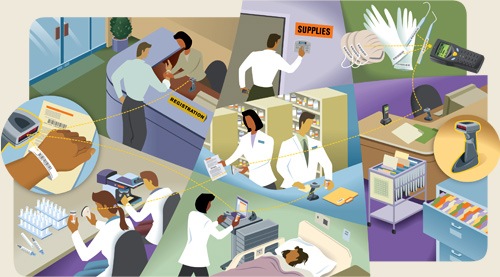
Foreword: This article was kept back for quite some time until today for the reason that it might cause a stir among many of our business partners, affiliates and a handful of close friends. I do not intend to discredit the medical profession in general nor embarrass anyone. My sole intention is to let them know that they should put people first above all before themselves.
Quality healthcare is one of the very basic benefit every Filipino should and always have. Yet, even those who have and can afford, cannot truly appreciate health care in its true sense of the word. I'd say, much of the problems in service delivery lies entirely not our government or the system but from the principal drivers of health care - the doctors.
I have listed some common and very annoying habits that doctors do or doesn't do in the practice of their profession and what med schools should teach to our young graduates.
1. Respect other people's time.
Have you ever seen a doctor who came in for work on time? Probably there are but in my experience 9 out of 10 doctors never make it on time. What's even more disheartening is the fact that people graciously accept doctors' tardiness. No one expresses anger or disappointment whenever the doctor come in late for work. Instead, they are greeted with respect and reverence much like greeting a priest in a confessional. Also, our chronically tardy doctors were given 'safe passes' or 'blanket' acceptance for such socially unacceptable behavior. It's high time that we should express to our doctors that our time is equally important as their time and that there are no excuse good enough for disrespecting our covenant of properly keeping time.
2. Always consider patient's financial capacity.
The cost of health care including diagnostic tests and medicines are steep these days most specially with the advancement of very modern medical technology. Ever wonder why doctors prescribe too many lab tests and not even ask if we can afford to pay for it? In retrospect, doctors should always qualify the financial capacity of the patient to pay for medical bills and that procedures should be conservative and given in accordance to patients' economic status. In other words, before an expensive procedure is to be given to a patient, a low cost alternative must first be considered unless extremely necessary.
If it may help to understand, doctors get as much as 15% to 30% percent (commission) for every laboratory referrals they make to private laboratories. The more referrals they make, the more income they generate - that is how the 'game' is played. Sad but true, there are no prevailing health care standards placed by our Government to better monitor and manage medical practice, much like an ISO for the manufacturing industry, and so doctors are left to do basically anything they want without being accountable for anything.
3. Give what is due to the Government.
Doctors make poor businessmen. A dishonest businessmen at that. In fact, they don't consider their practice a business at all; probably another excuse not to give official receipts and being chronically tardy. Doctors don't declare how much patients and money they earn for medical consultations. Doctors don't declare their commissions or referral fees they get from private laboratories and hospitals. Doctors don't declare cash gifts and bonuses. And, doctor's refuse to deduct taxes from services rendered to insurance holders. Well, if there is anything these doctors want to deduct from, it probably is their obligation of service and charity to their countrymen.
4. Stop asking favors.
We are in the business of health care and, part from being that, we hire doctors to manage our clinics. If there is truth to what our medical director once said that: "doctors need medical reps for conference sponsorships". Is it really a need or just merely a want? I pity the medical reps these days for they are reduced by these doctors to become their personal sponsors for conferences and even their dinner parties. This is one major reason why our medicines are among the most expensive in Asia because of the representation costs incurred by drug companies to these doctors. Yes, your doctor is the reason why they are expensive.
5. Work with the system.
Many doctors always seems to feel that they are always a cut above the rest. This probably stemmed from long and expensive education that they feel they should be given special treatment. Thus, being socially placed above the pedestal, they feel that they can work their best if there are less rules to follow. Rules that particularly govern their professional practice.
I can vividly remember when we first installed our first medical director to our chain of medical clinics and discussed on house rules and policies, they (the doctors) started feeling very uncomfortable.
The practice of medicine has changed dramatically over the years most specially with the advent of modern medical technology. We were able to probe deeper and understand primary causes of diseases and how we can protect ourselves from them. But, despite all the advancements, some basic yet very important things hasn't changed and that is how our modern shamans (doctors) practice their profession for the sake of science?









